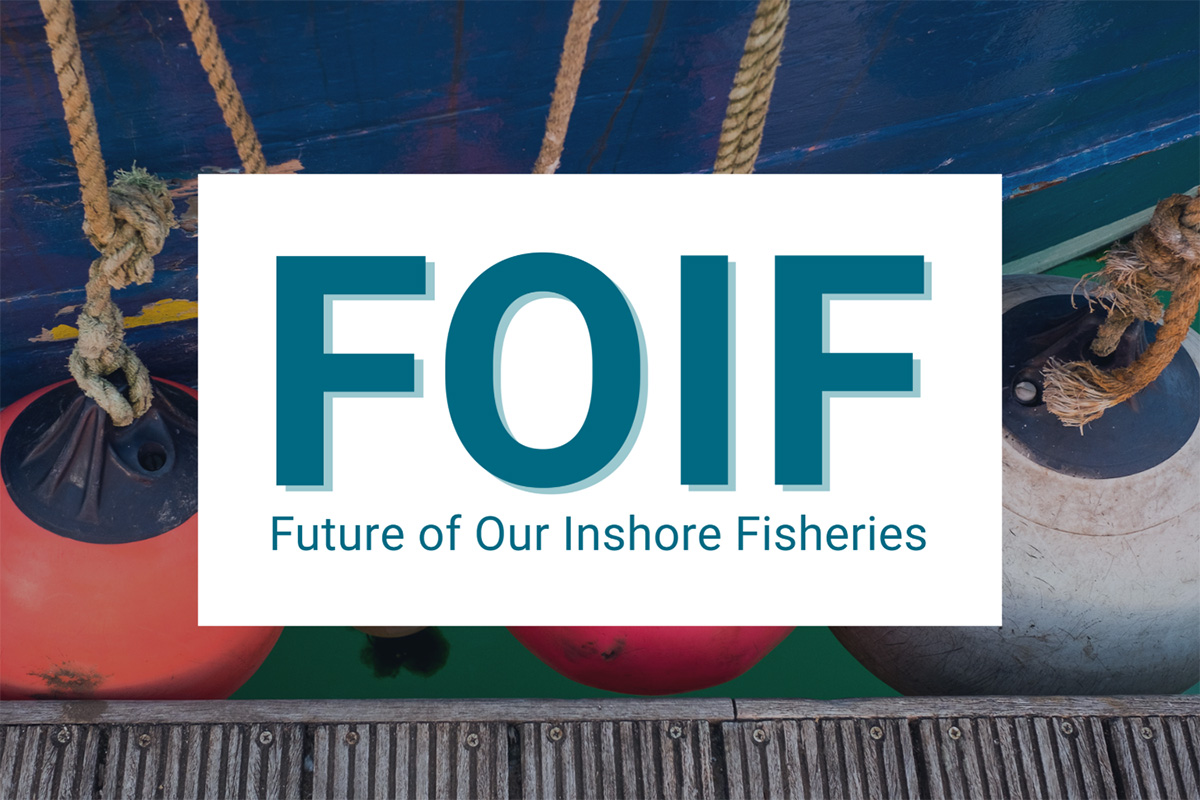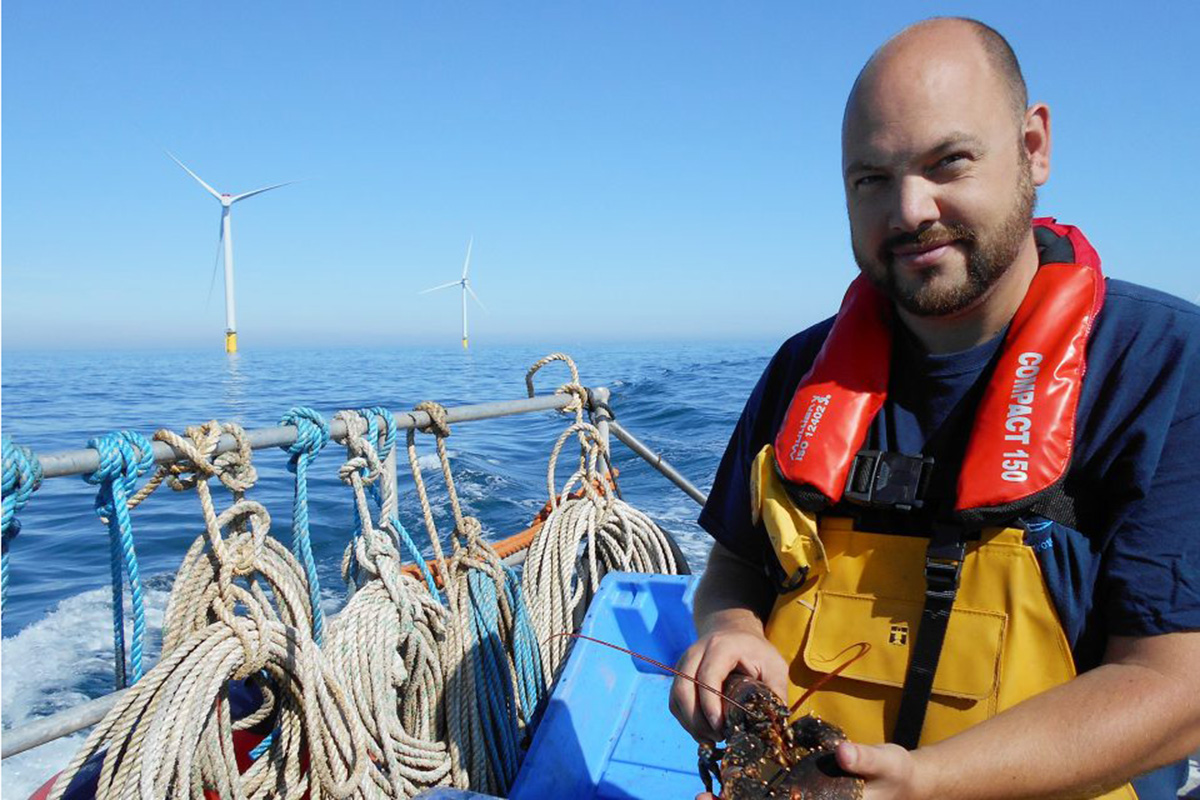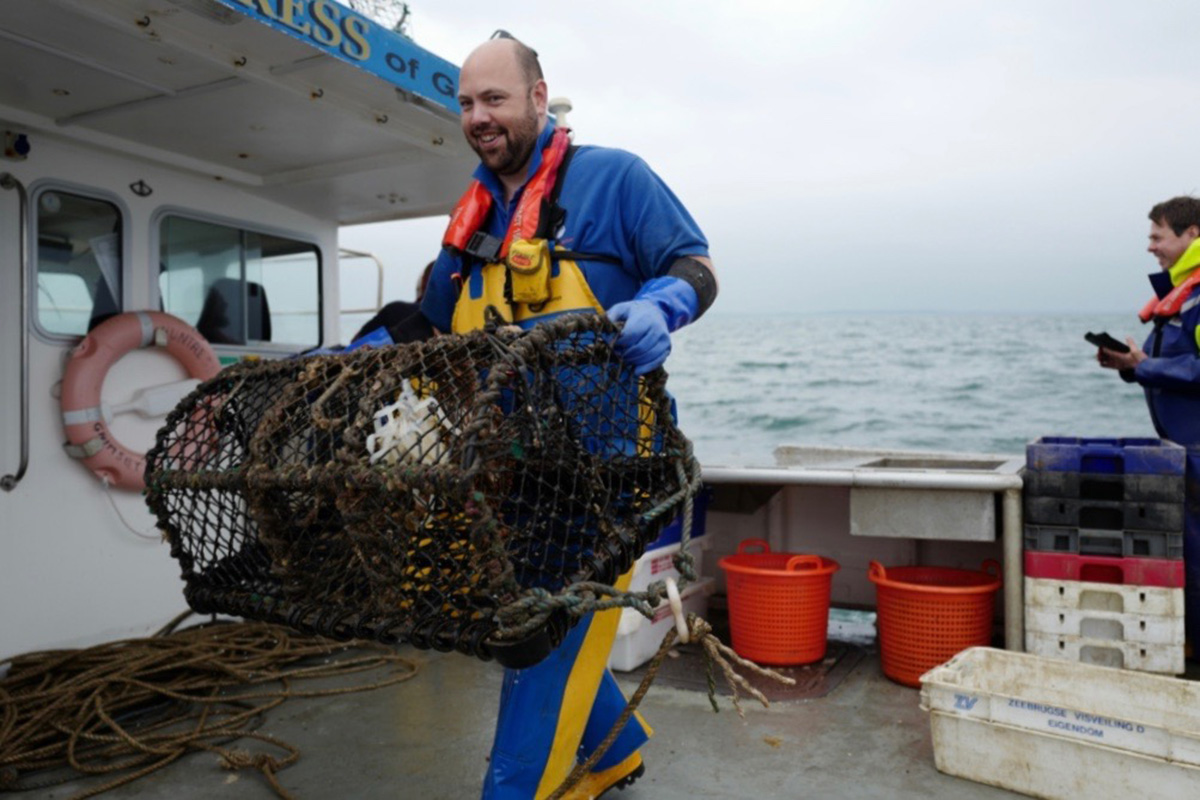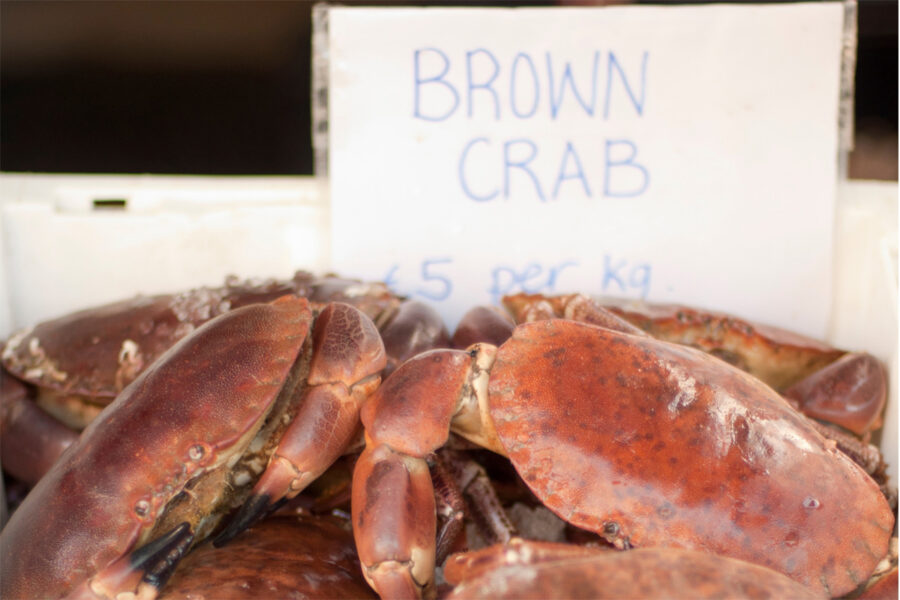Aoife Martin, director of operations at Seafish and chair of the Whelk Management Group, explains how industry-led science could hold the answers to some of the biggest questions in UK fisheries management
Across the country, fishermen and scientists are joining forces to transform our understanding of UK fisheries.

In 2019, landings of three of the UK’s most lucrative inshore species – crab, lobster and whelk – were valued at £71m, £46m and £26m respectively. But despite their value, we know very little about them. From the size of their populations to how they respond to fishing pressure, there are many knowledge gaps, leaving fishery managers in a grey area about how best to manage them sustainably.
A life on the water means that fishermen have invaluable experience and knowledge of the species they target – they are vital to understanding what is happening beneath the surface. Engaging fishermen in conversations around management therefore equips regulators and researchers with real-world, practical perspectives on issues including bycatch, important fishing grounds and effective governance.
Future of Our Inshore Fisheries (FOIF) was designed with exactly that in mind. An industry-led project launched in 2019, FOIF brings together fishermen with industry leaders, policy-makers, regulators and researchers. The project has paved the way for fishermen to become active participants in post-Brexit fisheries management through co-management, collaborative science and cross-sector engagement.
The FOIF Action Plan lays the foundations for FOIF’s work, including priorities for collaborative science. The action plan states: “We need to ensure that the right data and evidence is collected, at the right time, to the right standard and in a form that can be used to inform the right management decisions. This is more likely to happen when fishermen are active participants in the science and research process and are able to use their expert knowledge to help design research projects and review the results.”
A series of collaborative research projects have since sprung from the FOIF action plan, co-developed by industry- led groups focused on the management of whelk, crab and lobster.
Seafish has teamed up with researchers from Bangor University and Heriot-Watt University, as well as fishermen and organisations from across the industry, including Macduff Shellfish, Waterdance Ltd, Holderness Fishing Industry Group, South Devon and Channel Shellfishermen Ltd, the Western Fish Producers’ Organisation and the Welsh Fishermen’s Association. Together, they are collecting evidence to guide the future management of crab, lobster and whelk fisheries.
To better understand these stocks, the researchers and fishermen involved are deploying camera-operated sampling systems onboard fishing vessels (or at processing sites in the case of whelks) to gather information about catches. The footage is then analysed by computer vision technology, providing accurate detail on the quantity, size and sex of these shellfish.
Further research specifically on whelks is also underway across the UK, as Andrew Brown, director of sustainability and public affairs at Macduff Shellfish, explains: “Whelks, which have seen considerable fishery expansion in recent years, are severely data-deficient – more so than crab and lobster.
“Whelk fisheries pose some unique management challenges, including the lack of any form of stock assessment and their genetic variability over short distances. It is therefore essential that data and knowledge gaps are bridged to improve our understanding of the fishery, and to facilitate the design and implementation of more appropriate management measures. This will safeguard the stock and the fishery in the long run.”
As part of this research, scientists and regulators have been learning from fishermen, who are sharing their knowledge and experience of the fishery, including information on whelk numbers and sizes, bycatch and locations of fishing grounds. Such collaborations are happening in finfish fisheries too. In a partnership between fishermen, gear technologists and seabird experts, Fishtek Marine is helping to address seabird bycatch in set nets. By trialling above-water deterrents designed to prevent seabird bycatch, gill-net fishermen are actively contributing to research and helping scientists to understand if these devices could translate into reduced bycatch in an operational fishery.
Research collaborations like these directly contribute to the objectives of Fisheries Management Plans (FMPs).
Several FMPs, including those for crab, lobster and whelk, are currently being developed by the Shellfish Industry Advisory Group and the Finfish Industry Advisory Group, both created on the back of FOIF. This collective approach ensures that fisheries management is guided by industry requirements and expectations, whilst being scientifically sound and aligning with UK policy objectives.
Hannah Fennell, head of the Orkney Fisheries Association, says: “Fishermen make a living based on their experience and knowledge of stocks and fisheries. There is tremendous value in including them in the management process. Forging these connections will strengthen management, rebalance decision- making and decrease the distance between stakeholders and regulators.
“We’re all in this together.”
Voice from the industry
We spoke to Dr Mike Roach of the Holderness Fishing Industry Group (HFIG), who is also chair of the Crustacean Committee for the Shellfish Association of Great Britain.

Dr Mike Roach conducting lobster survey work onboard the Holderness Fishing Industry Group research vessel Huntress.
Asked about HFIG’s involvement in fisheries research, he explained: “To date, HFIG has participated in more than 13 research projects, collaborating with Cefas, the offshore developer Orsted, the North Eastern Inshore Fisheries and Conservation Authority, and several English, Scottish and Welsh universities, to name a few.
“The work we have recently received funding for through the Fisheries Industry Science Partnerships (FISP) scheme will hopefully help to address knowledge gaps in lobster and crab fisheries, which is essential for moving forward under the new Fisheries Management Plans for the two species.
“Many of our members are actively engaged in our research. For example, three vessels are currently involved in deploying our bespoke pot cameras that have been developed by Cefas as part of our FISP project.

The 10.8m catamaran RV Huntress, bought by HFIG in 2013, is used for stock assessment and survey work. HFIG is unique in being the only fishermen’s group that operates its own research vessel.
“All of these elements help bridge the gap between fisheries and science and create a greater understanding between the two sectors, whilst working towards common goals. Building a suite of research programmes that creates a holistic picture of our fishery, which can hopefully help wider UK potting fisheries, is what we are excited about moving forward.”
Asked what HFIG has learned from engaging in research, Dr Roach said: “We have found that pursuing our own HFIG-led research has allowed us to investigate the concerns of our members. It also helps bridge the gap between scientists and fisheries.
“Ultimately, we need to include fisheries as a key partner in research and management decisions moving forward, and not as a contributor to a project quickly forgotten after the initial data is collected. There are lots of good initiatives around the UK helping to bridge the gap, but further uptake by fisheries researchers and managers, including and feeding back directly to those involved, can ensure that fisheries science can be enhanced going forward.
“An engaged fisherman on a project is the most valuable tool a research project can have, providing a wealth of experience and knowledge that can too often be overlooked. As a fisheries scientist directly employed by the fishing industry, I learn more about the industry and what affects it through chats with our members and the wider industry than other sources.”
He concluded by reflecting on UK fisheries management more generally. “There will always be some concerns with the approaches taken to fisheries management, as they can be influenced by political agendas, environmental lobbying and public perception.
“However, the new Fisheries Management Plans for crab and lobster have been developed through a co-management approach by the Shellfish Industry Advisory Group and Crab and Lobster Management Group, which is essential for ensuring wider acceptance.
“There is hope that these new plans can improve the data needed to accurately assess our stocks, suggest appropriate tools to successfully manage the stocks, and ensure future sustainability and economic viability of our fisheries for future generations.”
Want to learn more about UK fisheries management or ways to get involved? Contact the Seafish Fisheries Management Team on: fisheriesmanagementplans@seafish.co.uk
This story was taken from the latest issue of Fishing News. For more up-to-date and in-depth reports on the UK and Irish commercial fishing sector, subscribe to Fishing News here or buy the latest single issue for just £3.30 here.








